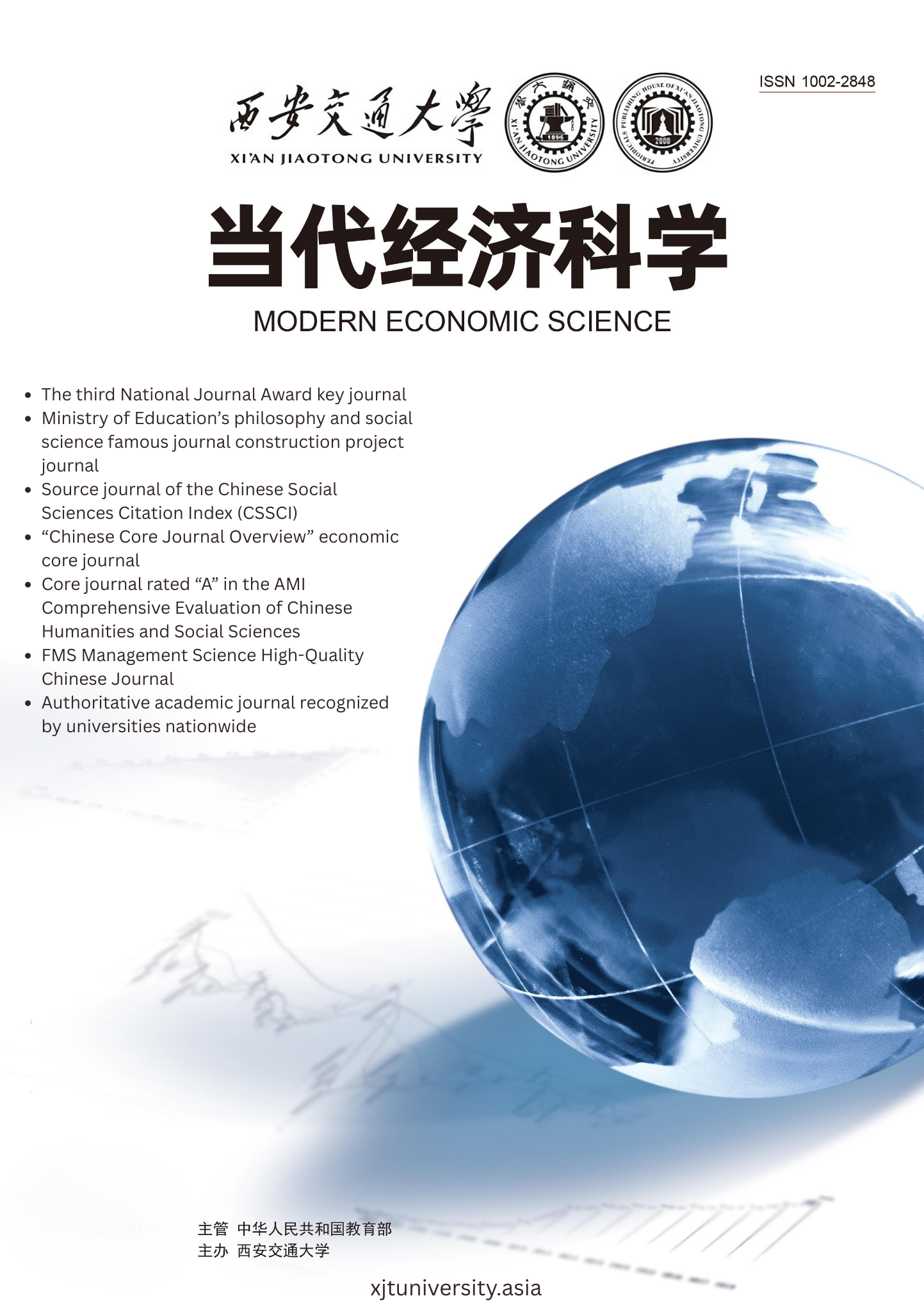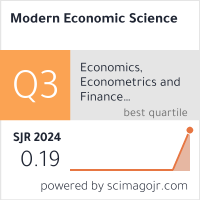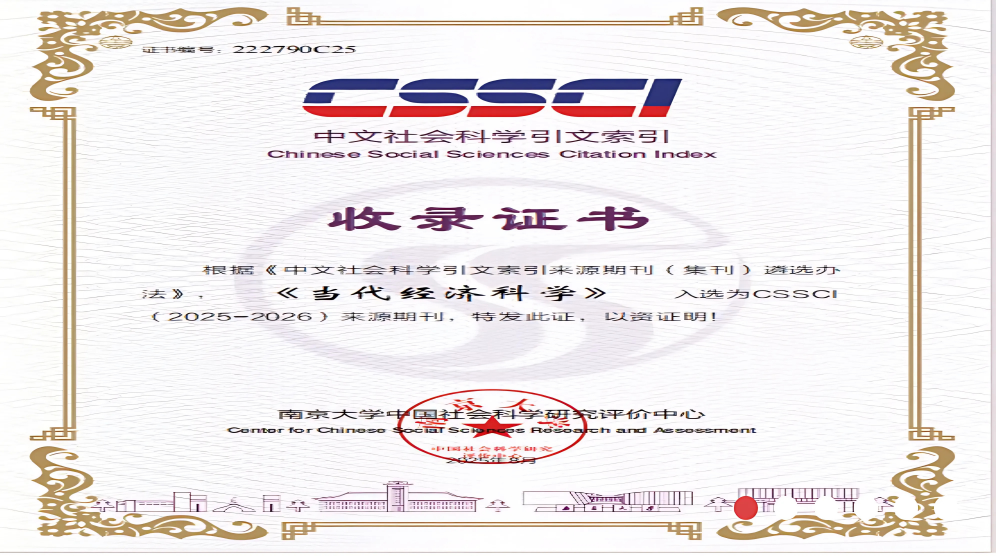Market Incentive Environmental Regulation and Enterprise Risk-Taking: Taking the Pilot Policy of Carbon Emission Trading as an Example
DOI:
https://doi.org/10.20069/dmvs0813Keywords:
environmental regulation, market incentive, green transformation, carbon emission trading, risk-taking, R&D innovation, productivity, profit marginAbstract
Global warming is a critical issue globally, necessitating immediate action on energy conservation and emission reduction. As a responsible emerging power, China has continuously refined its domestic carbon emission trading system, setting targets for carbon peak and carbon neutrality. However, environmental regulations introduce uncertainty and risk into corporate production, investment, and profitability. This paper introduces the concept of proactive risk-taking by enterprises.
Carbon emissions trading is a significant tool for market-based environmental regulation. This paper conducts both theoretical analysis and empirical testing based on China’s pilot policies for carbon emissions trading. Initially, a theoretical model is constructed to reflect corporate carbon emissions trading behaviors, exploring how such trading influences the risk-taking levels of light and heavy polluting enterprises. The theory suggests that carbon emissions trading helps guide corporate R&D innovation, reduce production costs, and enhance profits, ultimately elevating corporate risk-taking levels.
Using the seven pilot regions established by China’s National Development and Reform Commission for carbon emissions trading as a quasi-natural experiment, and data from Chinese A-share listed companies, empirical research is conducted. The results reveal that market-based environmental regulation significantly enhances the risk-taking levels of enterprises in pilot regions, particularly elevating the risk-taking levels of light-polluting enterprises, non-state-owned enterprises, and those in the eastern region. Mechanism analysis indicates that market-based environmental regulation enhances corporate risk-taking levels by promoting R&D innovation, productivity, and profitability. Moreover, this promotional effect is more pronounced in light-polluting enterprises compared to heavy-polluting ones.
This paper’s potential marginal contributions are twofold: First, from a research perspective, unlike existing literature which mostly analyzes mechanisms from the perspectives of the “cost” effect and “innovation compensation” effect of environmental regulations, this paper primarily examines the role of corporate engagement in carbon emissions trading and its subsequent economic effects on proactive risk-taking by enterprises. Second, in terms of theoretical value, this paper constructs a theoretical model to deduce the economic consequences of heavy and light-polluting enterprises’ participation in carbon emissions trading, exploring the operational mechanism of carbon emissions trading. Fundamentally, the mechanism of action in this paper originates from the engagement of enterprises in carbon emissions trading, affirming the effectiveness of market-led pollution emission rights in governing the environment.
This study affirms the positive role of market-based environmental regulation from the perspective of risk-taking. Economically, integrating environmental governance with market mechanisms can effectively mobilize enterprises to address the external diseconomies of environmental pollution, encouraging them to proactively assume the uncertainties brought about by environmental regulation and the risks associated with economic transformation. Facing the pressure of environmental governance, enterprises should actively respond to the opportunities and challenges brought by carbon emissions trading and improve their risk-taking through research and development innovation.
Downloads
References
[1] 李俊成, 彭俞超, 王文蔚. 绿色信贷政策能否促进绿色企业发展: 基于风险承担的视角 [J]. 金融研究, 2023(3):12-130.
[2] Albrizio S., Kozluk T., Zipperer V. Environmental policies and productivity growth: evidence across industries and firms [J]. Journal of Environmental Economics and Management, 2017, 81:209-226.
[3] 许家云, 杨俊. 互联网与中国制造业企业风险承担 [J]. 南开经济研究, 2021(5):176-197.
[4] Porter M. E., Van Der Linde C. Toward a new conception of the environment-competitiveness relationship [J]. Journal of Economic Perspectives, 1995, 9(4):97-118.
[5] 盛丹, 张国峰. 两控区环境管制与企业全要素生产率增长 [J]. 管理世界, 2019(2):24-42.
[6] 成力为, 肖彩霞. 环境规制、研发投资与企业绿色技术进步 [J]. 当代经济科学, 2022(4):115-129.
[7] 董直庆, 王辉. 市场型环境规制政策有效性检验: 来自碳排放权交易政策视角的经验证据 [J]. 统计研究, 2021(10):48-61.
[8] 刘晔, 张训常. 碳排放交易制度与企业研发创新: 基于三重差分模型的实证研究 [J]. 经济科学, 2017(3):102-114.
[9] 李俊成, 王文蔚. 谁驱动了环境规制下的企业风险承担: “转型动力”还是“生存压力”? [J]. 中国人口·资源与环境, 2022(8):40-49.
[10] 余明桂, 李文贵, 潘红波. 民营化、产权保护与企业风险承担 [J]. 经济研究, 2013(9):112-124.
[11] Cheng B. B., Dai H. C., Wang P., et al. Impacts of carbon trading scheme on air pollutant emissions in Guangdong province of China [J]. Energy for Sustainable Development, 2015, 27:174-185.
[12] 孙传旺, 魏晓楠. 市场激励型环境规制、政府补贴与企业绩效 [J]. 财政研究, 2022(7):97-112.
[13] 范丹, 付嘉为, 王维国. 碳排放权交易如何影响企业全要素生产率? [J]. 系统工程理论与实践, 2022(3):591-603.
[14] 周泽将, 罗进辉, 李雪. 民营企业身份认同与风险承担水平 [J]. 管理世界, 2019(11):193-208.
[15] Banerjee R., Gupta K. The effects of environmental sustainability and R&D on corporate risk-taking: international evidence [J]. Energy Economics, 2017, 65:1-15.
[16] 祁怀锦, 于瑶. 电子商务发展对企业风险承担的影响: 兼论差异化管理层激励方式的调节效应 [J]. 改革, 2021(10):114-130.
[17] Jing B. Behavior-based pricing, production efficiency, and quality differentiation [J]. Management Science, 2017, 63(7):2365-2376.
[18] 庄毓敏, 张祎. 流动性监管、银行稳健性与货币政策传导 [J]. 中国工业经济, 2022(6):5-23.
[19] 陈伟光, 潘凤, 蔡伟宏. 银行资本、盈利能力与风险承担 [J]. 金融经济学研究, 2021(4):141-160.
[20] Chiu F. P., Kuo H. I., Chen C. C., et al. The energy price equivalence of carbon taxes and emissions trading: theory and evidence [J]. Applied Energy, 2015, 160:164-171.
[21] Kuo K. H., Wu S. F., Lee C. T. The impact of environmental policy on wage inequality [J]. International Journal of Economic Theory, 2022, 18(4):472-485.
[22] Liu Q., Qiu L. D. Intermediate input imports and innovations: evidence from Chinese firms’ patent filings [J]. Journal of International Economics, 2016, 103:166-183.
[23] Li P., Lu Y., Wang J. Does flattening government improve economic performance? Evidence from China [J]. Journal of Development Economics, 2016, 123:18-37.
[24] Shi X. Z., Xu Z. F. Environmental regulation and firm exports: evidence from the Eleventh Five-Year Plan in China [J]. Journal of Environmental Economics and Management, 2018, 89:187-200.
[25] 倪娟, 孔令文. 环境信息披露、银行信贷决策与债务融资成本: 来自我国沪深两市A股重污染行业上市公司的经验证据 [J]. 经济评论, 2016(1):147-156.
[26] Bernile G., Bhagwat V., Yonkers. Board diversity, firm risk, and corporate policies [J]. Journal of Financial Economics, 2018, 127(3):588-612.
[27] 杜龙政, 赵云辉, 陶克涛, 等. 环境规制、治理转型对绿色竞争力提升的复合效应: 基于中国工业的经验证据 [J]. 经济研究, 2019(10):106-120.
[28] Ackerberg D. A., Caves K., Frazer G. Identification properties of recent production function estimators [J]. Econometrica, 2015, 83(6):2411-2451.
[29] 胡海峰, 窦斌, 王爱萍. 企业金融化与生产效率 [J]. 世界经济, 2020(1):70-96.
Downloads
Published
Issue
Section
License
Copyright (c) 2024 Editorial Board of Modern Economic Science

This work is licensed under a Creative Commons Attribution-NonCommercial 4.0 International License.













